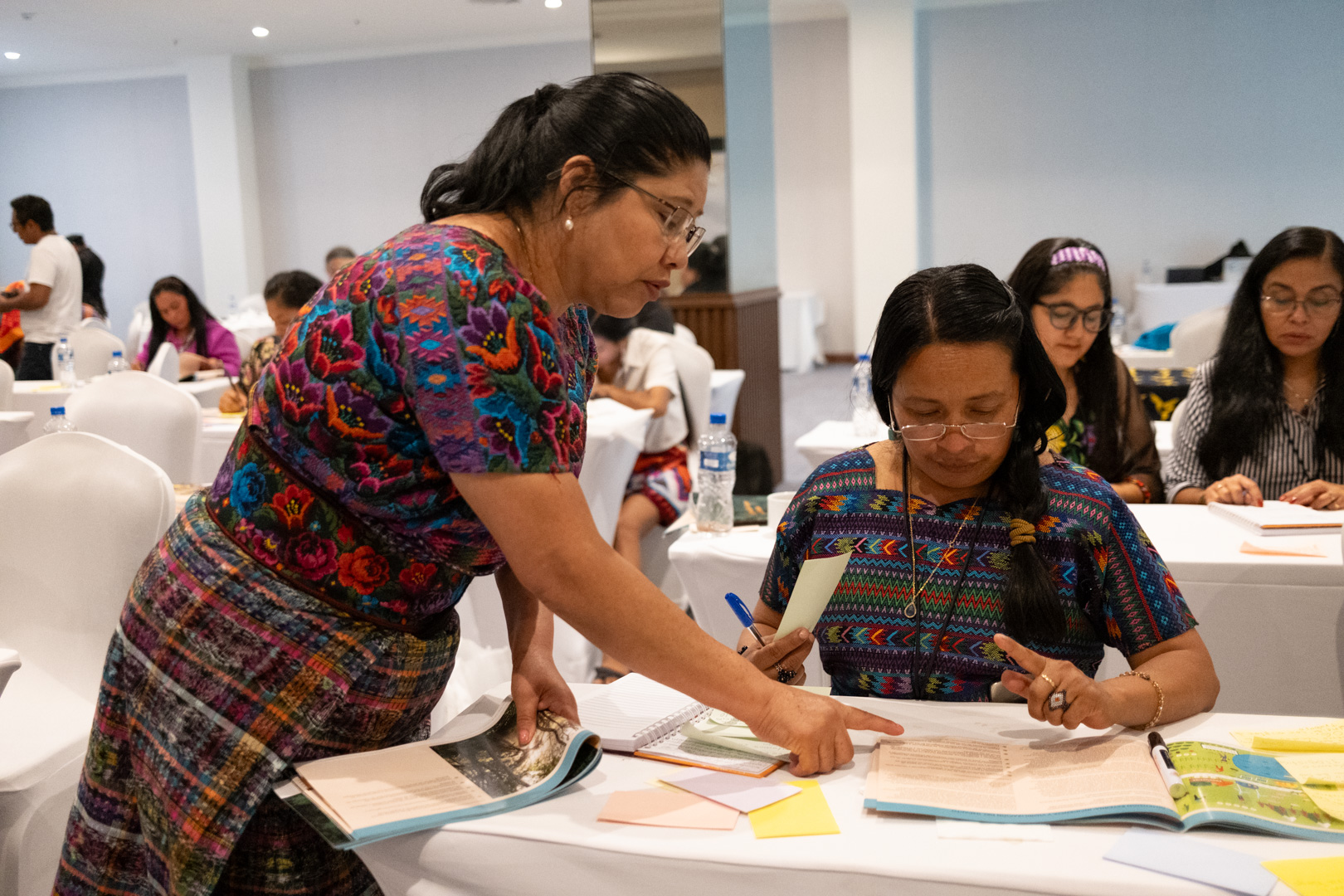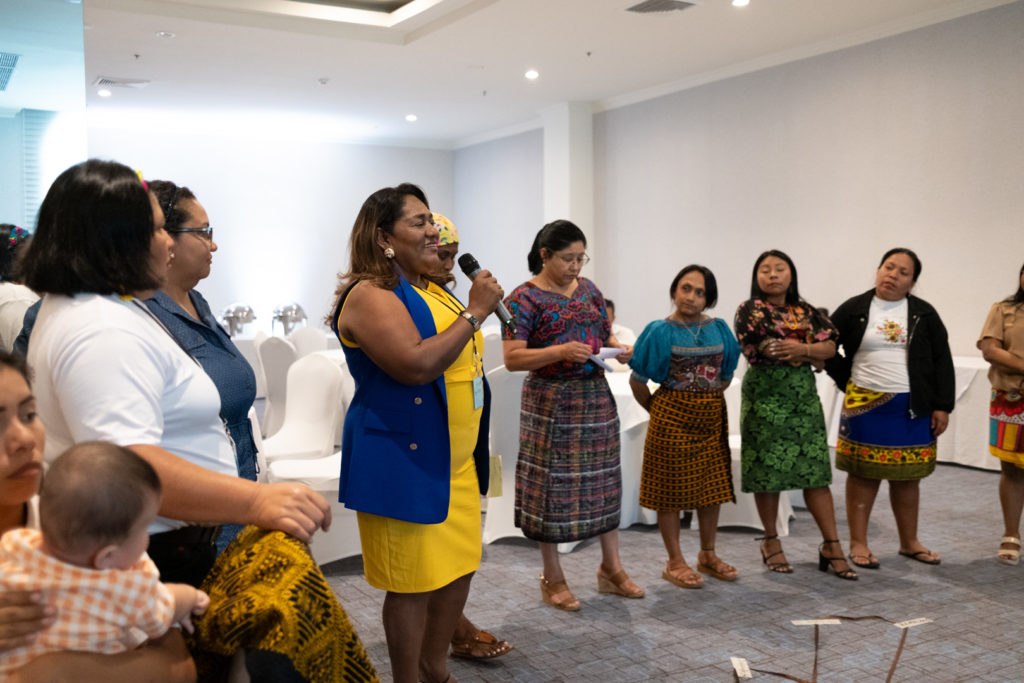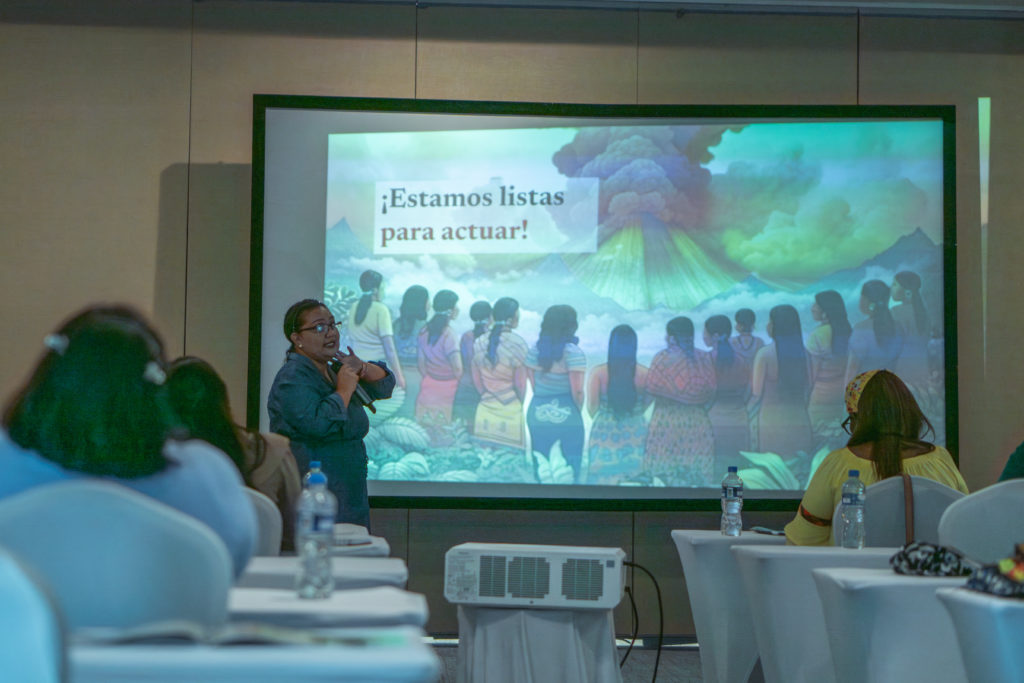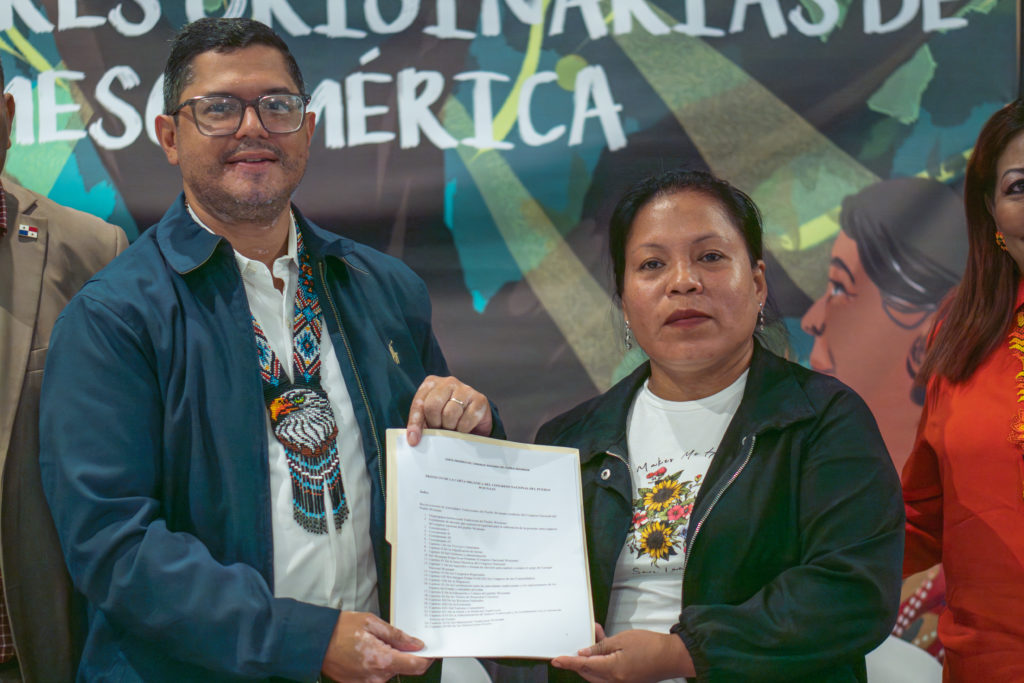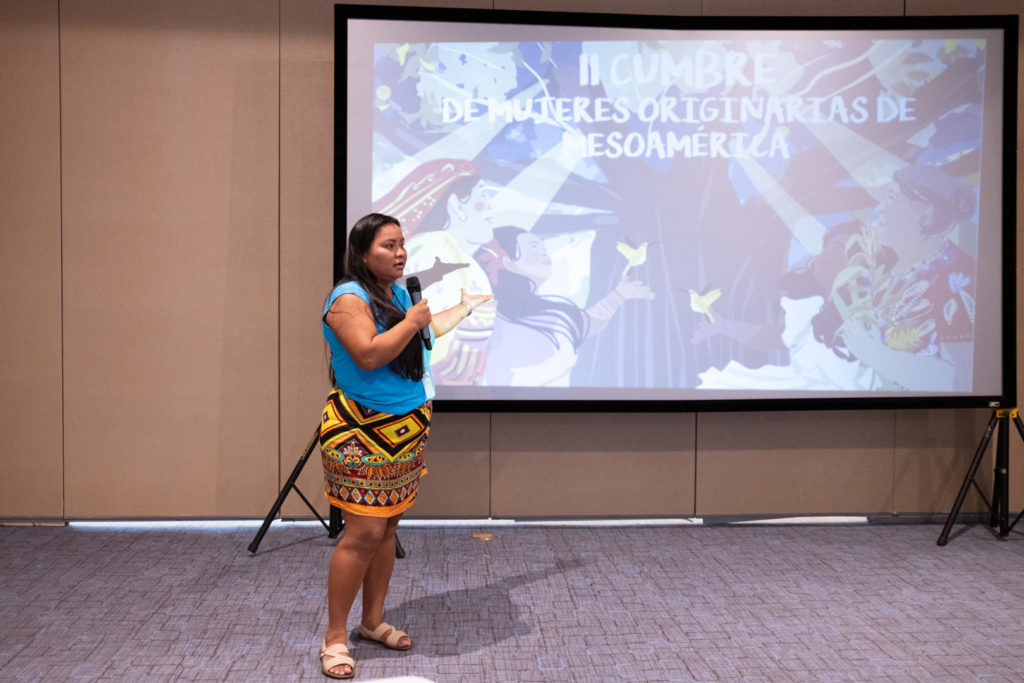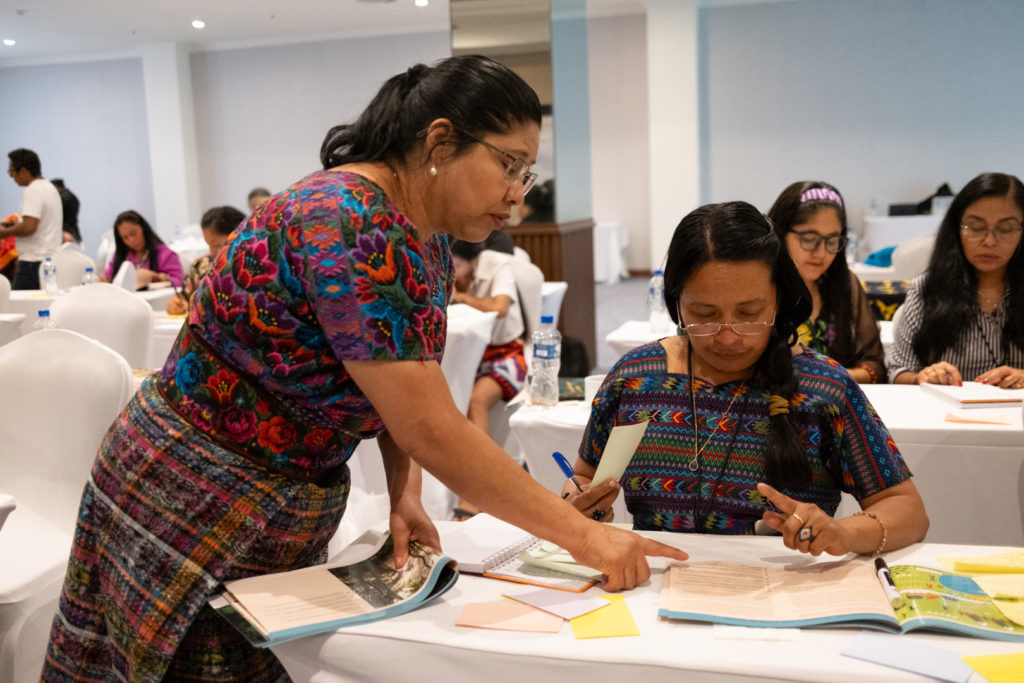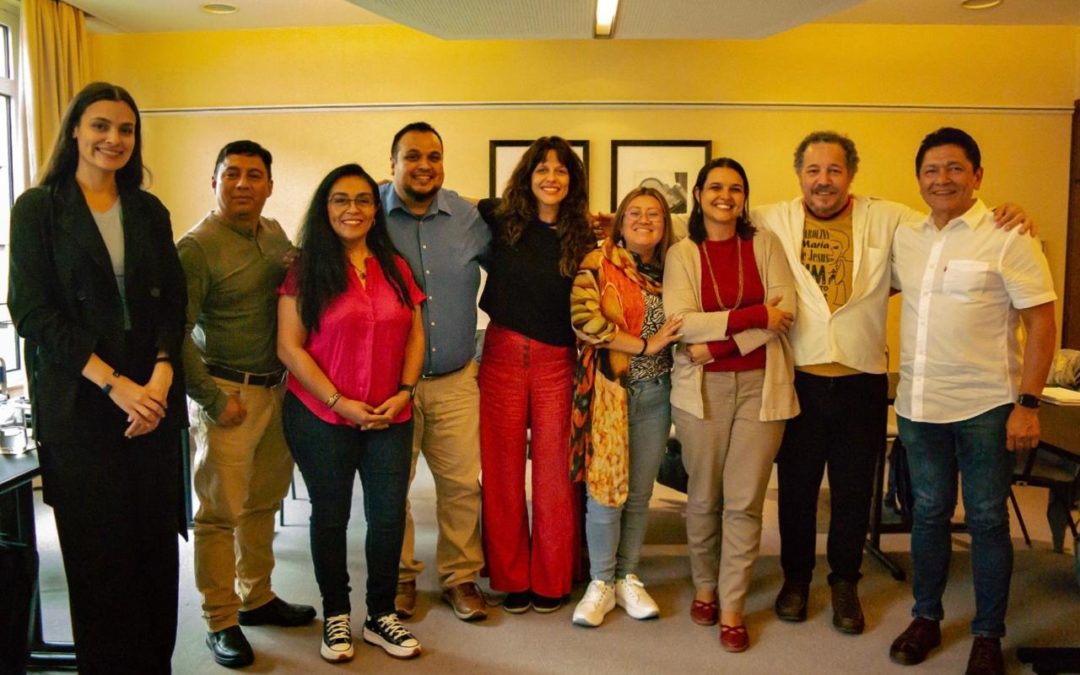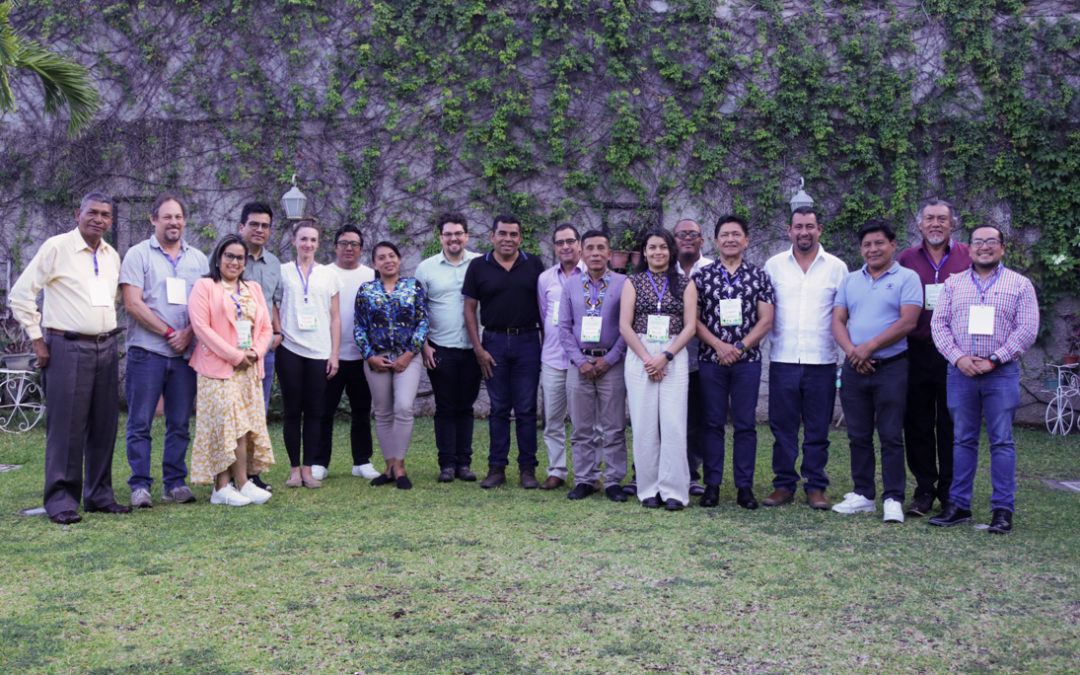More than 35 indigenous, Afro-descendant, and local community women from various Mesoamerican territories participated in the II Summit of Mesoamerican Indigenous Women. This event took place from May 14 to 16, 2024, in Panama City, Panama. It was a space facilitated by us, B’atz Project, and the Simone de Beauvoir Leadership Institute to strengthen CMLT internal governance and to deeply understand the territorial agendas of different leaders and their organizations in the context of the Regional Gender and Climate Change Plan. The summit highlighted the importance of governance, the articulation of different voices, and intergenerational representation.
“We have been seeking alternatives to advance our agenda and focus on strengthening our rights and those of our children, especially through collective action. Our work will always be constant and hard.” – Sara Omi Casama
Exchange and Reflection
This summit was a space for exchange and reflection. Each participant presented their territorial agenda, including the number of women involved, their projects, and their projections. This allowed all the women to learn about each other’s work, enriching the collective perspective. It concluded with a circle of listening and exchange, where they reflected on their common challenges and struggles. Women realized that their struggles and challenges are similar, and that their hearts are united in all women actions. Together, women are weaving an agenda that transcends borders, demonstrating solidarity and collaboration to drive change and justice in our communities.
“We have many similarities; we have realized that we all face the same struggles, and sometimes we do not have a voice and vote, but we must continue helping, for ourselves and for other women who do not have certain knowledge to defend their rights.” – Meybi Chamarra, Coordinator of the Advisory Committee of Indigenous Women of Panama (CAMIP)
Gender and Climate Change Plan
For generations, the women of Indigenous Peoples and Local Communities have played a fundamental role in conserving natural resources and preserving biodiversity in Mesoamerica. However, despite our significant contributions, they continue to face little or no funding, threats to their territories and ways of life, making them more vulnerable in a constantly changing world.
Indigenous and local community women lead daily efforts to conserve and sustainably manage natural resources, and to produce food in harmony with nature. However, in many decision-making spaces that affect their territories, contributions and solutions are not recognized or fairly compensated. Proof of this is that women own only 13% of the land worldwide, despite being approximately 43% of the agricultural labor force.
For this reason, they created the Regional Gender and Climate Change Plan, which was the central axis of the conversations during the three days of the summit. The collectively constructed roadmap responds to four main axes:
- Empowerment of the Social Base and Advocacy of Mesoamerican Women: Promote empowerment processes with identity and ensure funds and technical resources that allow women to be part of advocacy actions or dialogue and social management tables at all levels.
- Strengthening the Productive Capacity of Women and Their Communities: Increase access to land and resource tenure for Indigenous and local community women, and enhance the productive management capacity of plots by strengthening the adaptation and environmental mitigation models already being developed in the territories.
- Management of Ancestral Culture: Preserve knowledge of ancestral practices of planting, conservation, and natural resource management, as well as botanical knowledge of medicinal plants.
- Investment and Financial Security: Create bridges so that climate funds include Indigenous and local community women, and at the same time, foster actions to empower women and improve their financial well-being in the bases and territories.
“Our plan is focused and inspired by a large, leafy tree full of fruits, prosperous. To have this tree, it is a holistic vision of women. To build this, we must strengthen the roots with institutional strengthening. In the Women’s Coordinator, we need to strengthen technical and financial capacities to then increase the branches and fruits of the tree in well-consolidated political processes, with women leading policies and bringing benefits to the communities.” – Isabel Pasos, Coordinator of CMLT
Other Important Points
The Minister of Government, Roger Tejada, symbolically handed over the organic charter of the Emberá Wounaan Comarca to Aulina Ismare, chief of this territory, a milestone that strengthens and recognizes the autonomy of our communities.
The binational documentary “Guided by the Moon,” about the rescue process led by the Association of Kábata Könana Talamanca Cabécar Women and the Association of Emberá Women Artisans was proyected. Heylin Sánchez from Kábata Könana and Lupita Omi from AMARIE shared their experience and work in rescuing their ancestral planting systems.
During the rest of the day, women had a working session on the Regional Gender and Climate Change Plan, exploring common factors with our institutional plans and consolidating our shared vision to create a roadmap and implementation.
Levi Sucre, General Director of the Mesoamerican Alliance of Peoples and Forests, who spoke about our role within the AMPB agenda. The Simone de Beauvoir Leadership Institute facilitated a space for collective conversation and construction to work on our internal structure and governance. Women together recognize that their leaderships are diverse, with unique skills, and they are focus on building collective leadership where all women feel included and heard. With great pride, CMLT established their board of directors, selected through an assembly, and also created a first draft of their organizational chart.
Board of Directors
- President: Sara Omi – Association of Emberá Women Artisans (AMARIE)
- Vice President: Guadalupe Leyva – Mexican Network of Peasant Forest Organizations (MOCAF Network)
- Secretary: Heylin Sánchez – Women Association of Kábata Könana Talamanca Cabécar
- Treasurer: Candida Derek – Organization of Indigenous Miskito Women of Brus Laguna (BLIMAT)
- Vocal 1: Nora Trino – Muskitia Asla Takanka (MASTA)
- Vocal 2: Margarita Loop – Association of Community Forestry of Guatemala Utz Che’
- Vocal 3: Amalia Hernández – Federation of Agroforestry Producers of Honduras (FEPROAH)
“If we cannot make decisions, how are we going to continue with our struggles? We are the voices of women in our territories.” – Nora Trino, MASTA
This event was supported by the Mesoamerican Alliance of Peoples and Forests, Rainforest Foundation US, Proyecto B’atz, FSC Indigenous Foundation, Rights and Resources Initiative, and Global Alliance of Territorial Communities.
Together, women are weaving an agenda that transcends borders, demonstrating solidarity and collaboration to drive change, equity, and justice in our communities.
